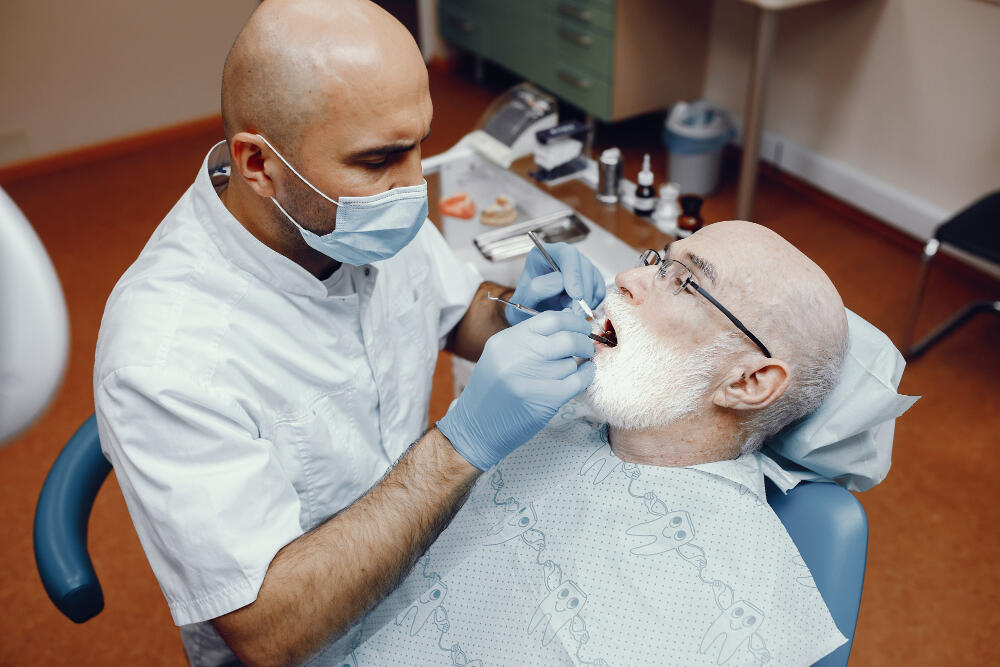Wisdom teeth are the last molars which usually erupt later on in life. These come about either in the late teens or early twenties. There is often no problem in the case of many, but to those with a developing issue in the form of pain, crowding, or infection, wisdom has to be extracted. Thus, if you’re thinking of looking up a wisdom teeth removal dentist near you, it’s apparent you are rather conversant with the procedure and the recovery process.
Why is Wisdom Teeth Removal Necessary?
Wisdom teeth removal is often required due to complications such as:
- Impaction: When the teeth don’t come completely out, sometimes they grow sideways, then perpendicular to other teeth in the same jaw.
- Crowding: Wisdom teeth could force the adjacent teeth forward leading to uneven chewing and misaligned bites.
- Infection & Decay: Because of their location in the back of the mouth, wisdom teeth are harder to clean, which means there is a higher risk of cavities and gum disease.
- Pain & Swelling: Some individuals have continuous pain, swelling, or stiffness of the jaw resulting from the eruption of wisdom teeth.
The Wisdom Teeth Removal Procedure
- Consultation: A dentist will take X-rays of your mouth to determine the position of your wisdom teeth.
- Anesthesia: Local anesthesia, sedation, or general anesthesia is to be administered, contingent upon the complexity of extraction.
- Extraction: The dentist near you will make a small incision in the gum, if needed, and extract the tooth. Stitches may be necessary to close the incision site.
- Post-Procedure Care: Gauze is applied over the extraction site to assist in controlling bleeding, and post-extraction instructions are given.
Recovery Time for Removal of Wisdom Teeth
Recovery varies for each person, but typically, it takes about a week to heal from wisdom teeth removal. Here’s what you can expect:
- The first 24 hours: Swelling, bleeding, and slight pain are to be expected. Ice packs can be applied to reduce swelling.
- Days 2-3: The swelling can be maximum but it subsides gradually. Avoid eating too hard or speaking too much.
- Days 4-7: Most patients are out of bed. They can now begin with very soft diets, but continue to rinse with saltwater.
- Week 2: The sutures (if placed) should be dissolved or expelled, and the pain would be very slight.
Tips for a Smooth Recovery
- Follow your dentist’s instructions: This is the most important to avoid complications.
- Avoid the use of straws and smoking: These will dry out the socket, a very painful condition that slows healing.
- Stick to soft foods: Mashed potatoes, yogurt, and soup are good ones for the first few days.
- Maintain oral hygiene: Keep the oral cavity clean by gently brushing around the extraction site and rinsing with warm salt water.
- Use prescribed medication: If your dentist prescribes pain relievers or antibiotics, use them as directed in order not to experience too much pain and infection.
Long-Term Effects of Wisdom Teeth Removal
Most people recover fully without complications. Some may have complications:
- Improved Oral Health: The removal of problematic wisdom teeth can help decrease the chances of infections and misalignment.
- Changes in the jawbone: Jaw structure may move a little along with time though usually not quite noticeable.
- Temporary Nerve Sensitivity: In some instances, nerve damage may cause temporary numbness or tingling, which resolves on its own.
- Better Overall Comfort: Most patients show a considerable reduction in jaw pain and headaches following the removal of wisdom teeth, which can significantly improve their quality of life.
Looking for a Trusted Dentist Near You?
If you require wisdom tooth extractions in York, you should look for Caledonia Crosstown Dental Centre. We have an expert dental team ensuring the process will be pain-free and very comfortable, thus having a fast recovery. Book an appointment today with a tooth extraction dentist for high-quality services of wisdom teeth removal!

